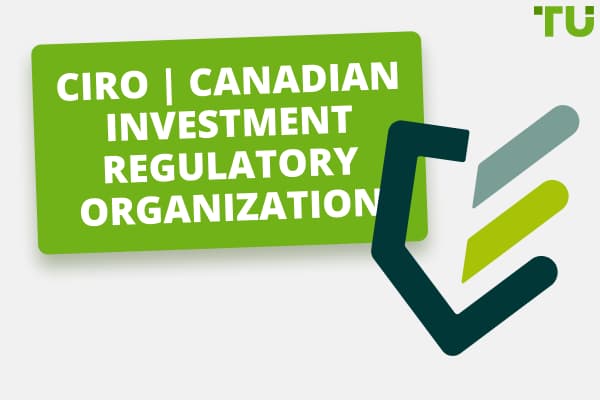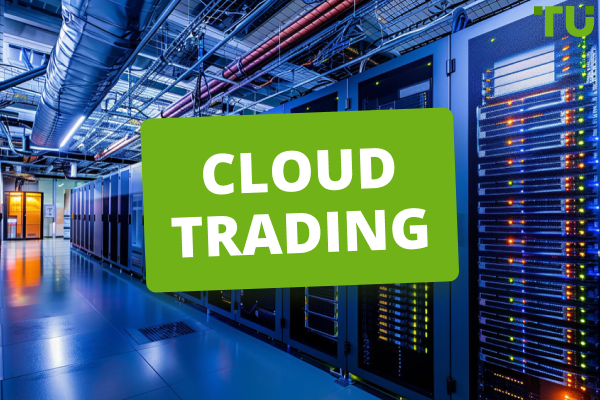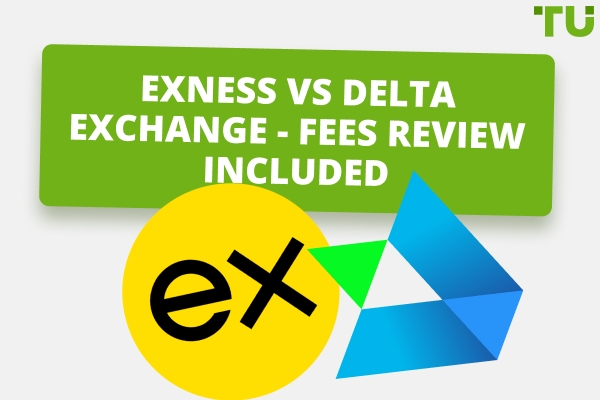
IC Markets vs HFM - Fees Review included
When comparing IC Markets and HFM fees, both brokers offer nearly identical conditions. The standard account spreads for EUR/USD range from 0.8 to 1.0 pips for both brokers. For ECN accounts, the spread starts at 0.1 pips with a commission of 3.5. Neither broker charges deposit fees, withdrawal fees (in percentage or USD), or inactivity fees, making them equally cost-effective options for traders. Overall, IC Markets and HFM provide very similar fee structures, with no significant differences in their pricing models.
Which broker is better, IC Markets or HFM (HotForex)? Our expert assessment conducted according to TU’s own methodology showed that IC Markets is one of the top brokers in the financial market with the TU Overall Score of 8.33 out of 10. HFM is one of the top brokers in the financial market with the TU Overall Score of 7.55 out of 10. Find out more about TU Overall Score.
IC Markets vs HFM - overall ranking
Both IC Markets and HFM are well-known for offering great trading conditions and strong regulatory frameworks. Many traders look for HFM and IC Markets reviews to compare their features and decide which broker fits their needs. While IC Markets is popular for its raw spreads and advanced trading tools, HFM earns praise for its diverse account options and excellent customer support.
If you’re doing a HFM and IC Markets comparison, you should consider factors like execution speed, leverage options, and platform compatibility. Both brokers provide access to MetaTrader platforms, making it easier to choose the right broker based on your trading style, whether you’re a scalper, day trader, or algorithmic trader.
Deciding the best broker between HFM and IC Markets comes down to personal preferences. IC Markets is a top choice for traders looking for raw spreads, deep liquidity, and ECN features. Meanwhile, HFM appeals to those who prefer a wide range of trading tools, strong educational resources, and flexible account types.
IC Markets vs HFM - overall ranking
| Feature | IC Markets | HFM |
|---|---|---|
|
Overall |
4.7 |
4.6 |
|
Regulation |
5 |
4.5 |
|
Fees |
4.9 |
4.4 |
|
Trading assets |
4.6 |
4.6 |
|
Investment instruments |
4.9 |
4.1 |
|
Platforms and charting tools |
4.4 |
4.9 |
|
Deposit and withdrawal |
4.6 |
4.4 |
|
Research |
4.3 |
4.8 |
|
Education |
4.4 |
4.8 |
|
Support |
4.6 |
4.4 |
|
Bonuses |
2.5 |
4.2 |
|
Open an account |
IC Markets vs HFM: pros and cons
IC Markets
IC Markets, founded in 2007 in Sydney, Australia, operates under the Australian Financial Services License (AFSL) and is regulated by the Australian Securities and Investment Commission (ASIC). It is also a member of the Australian Financial Complaint Authority (AFCA), helping resolve disputes fairly and ensuring compliance through regular audits.
HFM
HFM (HotForex), owned by the HF Markets Group, has built a strong reputation by offering various account types, an extensive range of trading assets, and high-quality software. Known for its favorable trading conditions and quick order execution, HFM supports traders at all levels. Over more than a decade, it has shown its trustworthiness by earning 35 prestigious awards and obtaining licenses from multiple regulators. MetaTrader 4 and MetaTrader 5 platforms are supported, providing traders with flexibility and advanced tools.
When comparing the pros and cons of HFM and IC Markets, key factors such as fees, execution speed, and tradable assets should be considered. IC Markets is well-known for offering tight spreads and high liquidity, making it a go-to choice for scalpers. Meanwhile, HFM excels with its diverse account offerings, which cater to both new and experienced traders. We also recommend studying the comparison of OctaFX, IC Markets and HFM, as well as analyzing their main features, commissions, trading conditions, regulation and support.
The HFM and IC Markets platforms deliver strong trading solutions. Both brokers provide access to MetaTrader 4 and MetaTrader 5, along with smooth execution, advanced charting tools, and a wide range of tradable assets. These features make both platforms solid choices for traders seeking reliability and efficiency.
IC Markets vs HFM: pros and cons
| Pros and cons | IC Markets | HFM |
|---|---|---|
|
Overall pros |
|
|
|
Overall cons |
No Forex bonuses |
Withdrawal terms do not always correspond to those indicated |
IC Markets vs HFM: safety and regulation
IC Markets and HFM are both well-regulated brokers, ensuring a high level of security for traders. IC Markets is licensed under the Australian Financial Services License (AFSL) and regulated by the Australian Securities and Investment Commission (ASIC). It is also a member of the Australian Financial Complaint Authority (AFCA), which provides additional investor protection.
Traders looking for a secure trading environment often compare how HFM and IC Markets are regulated, focusing on the oversight provided by different financial authorities. Both brokers adhere to strict regulatory guidelines, ensuring transparency, client fund protection, and fair trading practices, making them reliable choices in the global market.
IC Markets vs HFM: safety and regulation
| Regulated By: | IC Markets | HFM |
|---|---|---|
|
Max. regulation level |
Tier-1 |
Tier-1 |
|
Investor protection |
€20,000 |
€20,000 |
|
FCA UK regulation |
No |
No |
|
FINRA (U.S) |
No |
No |
|
BaFin (Germany) |
No |
No |
|
ASIC (Australia) |
Yes |
Yes |
|
CFTC (U.S) |
No |
No |
|
MAS |
No |
No |
|
FSCA SA |
No |
No |
|
BVI FSC |
No |
No |
|
VFSC |
No |
No |
|
FSA (Seychelles) |
Yes |
Yes |
IC Markets vs HFM: trading conditions
When evaluating trading conditions at HFM and IC Markets, traders should look at factors like leverage, spreads, and execution speed, as these directly affect your trading results. HFM is well-known for its commission-free trading options, while IC Markets stands out for its raw spread accounts, which are ideal for those who prioritize tight spreads and accuracy.
Both the HFM and IC Markets platforms provide a stable and efficient trading experience. They offer powerful charting tools, automated trading options, and robust risk management features. Additionally, both brokers support mobile trading, so traders can stay connected to the markets and manage their accounts anytime, anywhere.
When comparing the HFM and IC Markets minimum deposit, the difference lies in accessibility. HFM allows deposits as low as $5 on some account types, making it beginner-friendly. On the other hand, IC Markets requires a $200 minimum deposit for its standard and raw spread accounts, making it a good choice for seasoned traders seeking competitive conditions.
IC Markets vs HFM: trading conditions
| Trading conditions | IC Markets | HFM |
|---|---|---|
|
Minimum deposit |
$200 |
$5 |
|
Trading platforms |
MT4, MT5, cTrader |
MT4, MT5 HotForex FIX/API |
|
Max leverage (Futures) |
1-500 |
1-1000 |
|
Supported markets |
Forex, futures, CFDs on indices, commodities, metals, stocks and bonds |
Forex, Stocks, ETFs, CFDs on commodities, indices, shares, crypto, metals |
|
Trading assets |
2000+ |
1200+ |
|
Trading accounts |
cTrader, Raw Spread, Standard |
Demo, Micro, Premium, Zero Spread, Auto, PAMM (Premium), HFcopy, Islamic account |
|
Base account currencies |
USD, AUD, GBP, CHF, JPY, NZD, SGD, CAD, HKD, BTC |
EUR, USD |
IC Markets vs HFM: fees
When comparing HFM and IC Markets, an important factor to look at is their spreads. HFM includes costs in its spreads, offering commission-free trading, while IC Markets focuses on tighter spreads with commissions on Raw Spread accounts. This difference allows traders to choose based on what they prefer in terms of costs.
Another point worth comparing is the fees at HFM and IC Markets. HFM provides flexible pricing options that cater to different trading styles, while IC Markets is known for lower overall costs, including minimal swap rates and competitive withdrawal charges. Understanding these fees helps traders pick a broker that suits their budget.
Lastly, the type of account available at HFM and IC Markets matters:
-
HFM is suitable for a variety of traders with its standard commission-free accounts.
-
IC Markets targets professionals with its Raw Spread accounts that offer ultra-low spreads.
Choosing the right account comes down to what the trader needs and values in their trading approach.
IC Markets vs HFM: fees
| Fees | IC Markets | HFM |
|---|---|---|
|
Standard acc. spread EUR/USD, min pips |
0,8 |
0,8 |
|
Standard acc. spread EUR/USD, max pips |
1,0 |
1,0 |
|
ECN commission |
3,5 |
3,5 |
|
ECN spread EUR/USD |
0,1 |
0,1 |
|
Deposit fee, % |
No |
No |
|
Withdrawal fee, % |
No |
No |
|
Withdrawal fee, USD |
No |
No |
|
Inactivity fee, $ |
No |
No |
A conversion fee may be applied as withdrawals and deposits are conducted in USD. Any other currency will have to be converted.
IC Markets vs HFM: trading assets
HFM and IC Markets offer diverse trading options, including Forex, commodities, indices, stocks, and cryptocurrencies. For traders comparing HFM and IC Markets trading features, both brokers excel in different areas. IC Markets is popular for its deep liquidity and extensive range of instruments, making it great for traders looking to diversify. On the other hand, HFM appeals to traders of all levels with multiple account types and access to global markets.
When it comes to Forex trading, HFM and IC Markets help traders execute their strategies with ease. Both brokers provide competitive spreads, high leverage, and advanced trading tools, whether you're focusing on major currency pairs or more volatile exotic ones. Their reliable execution ensures traders can act quickly in dynamic markets.
Examining Forex on HFM and IC Markets shows their emphasis on variety and reliable execution. With support for multiple asset classes, both brokers fit different trading approaches, making them strong options for a wide range of traders.
IC Markets vs HFM: trading assets
| Asset name | IC Markets | HFM |
|---|---|---|
|
Overall |
2000+ trading assets |
1200+ |
|
Forex |
Yes |
Yes |
|
Stocks |
Yes (CFD) |
Yes |
|
Metals |
Yes (CFD) |
Yes (CFD) |
|
Cryptocurrencies |
Yes (CFD) |
Yes (CFD) |
|
Energy |
Yes (CFD) |
Yes (CFD) |
|
Indices |
Yes (CFD) |
Yes (CFD) |
|
ETFs |
Yes (CFD) |
Yes |
|
Bonds |
Yes (CFD) |
Yes (CFD) |
|
Mutual funds |
No |
No |
|
Stock options |
No |
No |
|
Futures trading |
Yes (CFD) |
No |
|
Binary options |
No |
No |
IC Markets or HFM: investment programs
IC Markets and HFM both offer investment programs designed to help traders maximize their earnings. HFM provides a PAMM (Percentage Allocation Management Module) system, allowing investors to allocate funds to experienced traders. IC Markets, on the other hand, offers MAM (Multi-Account Manager) accounts, which cater to professional traders managing multiple clients.
When comparing HFM and IC Markets programs, traders should consider the level of control, risk management features, and potential returns. While HFM’s PAMM accounts are ideal for passive investors, IC Markets’ MAM accounts provide more flexibility for professional money managers.
Both HFM and IC Markets investment options cater to traders looking for automated or managed solutions, ensuring a structured approach to growing their portfolios. Investors can choose from different strategies based on their risk tolerance and trading goals.
IC Markets or HFM: investment programs
| Investment programs | IC Markets | HFM |
|---|---|---|
|
Copy trading |
Yes |
Yes |
|
MAM/PAMM |
Yes |
No |
|
Managed accounts |
No |
No |
|
Other |
No |
Bond CFDs |
Trading platforms: HFM or IC Markets
Both HFM and IC Markets allow traders to use MetaTrader 4 and MetaTrader 5, with features like charting tools, automation, and ease of use. These platforms ensure quick execution and detailed analysis, making them a good choice for traders with various strategies. Choosing between the HFM and IC Markets platform options depends on your trading style, as well as the tools and execution speeds that fit your needs.
The HFM and IC Markets trading environments are suitable for both new and seasoned traders. Whether you prefer manual trading or automated systems, these brokers offer strong features and smooth execution to help traders reach their goals. Both brokers also provide mobile and desktop platform versions, making it easy to trade from anywhere.
Trading platforms: HFM or IC Markets
| Trading platforms | IC Markets | HFM |
|---|---|---|
|
MT4 |
Yes |
Yes |
|
MT5 |
Yes |
Yes |
|
cTrader |
Yes |
No |
|
Appropriate platform |
IC Markets terminal |
HotForex FIX/API |
|
Others |
No |
No |
IC Markets vs HFM: deposit and withdrawal methods
IC Markets and HFM offer multiple deposit and withdrawal options, including bank transfers, credit/debit cards, and various e-wallets. Both brokers ensure fast processing times and minimal transaction fees, making fund transfers convenient for traders.
Traders comparing HFM and IC Markets minimum deposit requirements will find that IC Markets generally requires $200, while HFM offers lower entry points, with some accounts starting from just $5. This makes HFM more accessible to beginners, while IC Markets caters to traders looking for professional-grade conditions.
HFM and IC Markets withdrawal processes are designed for efficiency, with most transactions processed within 24 hours. Traders should check for potential fees and processing times based on their chosen payment method.
IC Markets vs HFM: deposit and withdrawal methods
| Deposit and withdrawal method | IC Markets | HFM |
|---|---|---|
|
Bank wire |
Yes |
Yes |
|
Bank card |
Yes |
Yes |
|
Neteller |
Yes |
Yes |
|
BTC |
Yes |
Yes |
|
Wise |
No |
No |
|
Payoneer |
No |
No |
|
USDT |
Yes |
Yes |
IC Markets vs HFM: research
Both HFM and IC Markets provide excellent research tools to keep traders informed about market movements. These resources include market analysis, trading signals, and educational content, all aimed at helping traders make smarter trading decisions.
When assessing the research types offered by HFM and IC Markets, traders should look at the depth of the insights they provide. Both brokers offer tools like technical and fundamental analysis, daily reports, webinars, and real-time data updates, giving traders useful information to guide their trading strategies.
For those comparing HFM and IC Markets research types, it’s clear that both brokers focus on providing expert insights and education. While HFM shines with a wide variety of trading signals, IC Markets stands out for its detailed technical analysis and fast data updates, making both brokers solid options for traders seeking in-depth research.
IC Markets vs HFM: research
| Research type | IC Markets | HFM |
|---|---|---|
|
News feed |
Yes |
Yes |
|
Fundamental data |
Yes |
Yes |
|
Chart analysis |
Yes |
Yes |
|
Trading ideas |
Yes |
Yes |
|
E-Mail reports |
Yes |
Yes |
IC Markets vs HFM: education
Both HFM and IC Markets offer resources that help traders, especially beginners. For new traders, the HFM and IC Markets for beginners programs include structured learning paths and demo accounts, which allow them to get comfortable before trading live.
In terms of learning materials, the HFM and IC Markets education programs are known for providing webinars, video tutorials, trading guides, and articles. These resources serve traders regardless of their experience, with beginner-friendly guides to help new traders get started and advanced insights for those looking to deepen their knowledge.
By combining expert insights with interactive tools, both brokers help traders build their skills, stay updated on market trends, and make smarter decisions as they grow in their trading journey.
IC Markets vs HFM: education
| Education type | IC Markets | HFM |
|---|---|---|
|
Demo-account/Paper trading |
Yes |
Yes |
|
Webinars |
Yes |
Yes |
|
Articles |
Yes |
Yes |
|
Videos |
Yes |
Yes |
|
Cent account |
No |
Yes |
HFM vs IC Markets: support
Both IC Markets and HFM offer responsive customer support, available through multiple channels such as email, phone, and live chat. Their support teams are well-trained to assist traders with account-related inquiries, technical issues, and general trading questions.
When evaluating IC Markets and HFM support, traders should consider availability, response time, and the quality of assistance provided. Both brokers ensure 24/5 customer service, making it easy for traders to get help when needed.
IC Markets and HFM live chat features allow traders to receive instant assistance for urgent issues, ensuring a smooth trading experience. This real-time support option is particularly useful for resolving technical difficulties and account-related concerns quickly.
HFM vs IC Markets: support
| Support features | IC Markets | HFM |
|---|---|---|
|
Working days |
24/5 |
24/5 |
|
|
Yes |
Yes |
|
Phone |
Yes |
yes |
|
Online chat |
Yes |
Yes |
|
Other |
No |
No |
IC Markets vs HFM: Forex bonuses and promo
HFM and IC Markets approach trader rewards differently. HFM gives traders more ways to improve their experience through promotions like deposit bonuses, cashback rewards, and trading contests. On the other hand, IC Markets focuses on low trading costs and institutional-grade liquidity instead of promotions. Exploring the HFM and IC Markets offers can help traders decide which suits them better.
The bonus programs at HFM and IC Markets are quite different as well. HFM regularly introduces deposit bonuses and trading incentives, providing opportunities to boost trading capital. Meanwhile, IC Markets focuses on cost-effective trading with low commissions and spreads, rather than offering bonuses. Traders comparing the HFM and IC Markets bonus programs can choose based on their needs — whether they value periodic rewards or lower trading costs.
IC Markets vs HFM: Forex bonuses and promo
| Promo | IC Markets | HFM |
|---|---|---|
|
Forex bonus |
Not offered |
Super Charged bonus. Daily discounts of USD 2 per lot for deposits from USD 250. The maximum payout is $8,000. The calculation is made automatically, after which the funds can be withdrawn by the client or used for trading on the market. Credit bonus Provides an increase in leverage for a certain trading volume. |
|
Affiliate program |
% of trading commissions |
Affiliate Partners and Introducing Brokers (IB) program. The program is available to organizations and individuals around the world. It provides for making a profit in the form of a reward for attracting new customers to the broker. Under the terms of cooperation, the company provides support by assigning a manager to each introduced broker. Also, the broker can assist in performing calculations, provide the necessary software and guarantee a high level of service. Regional representatives are an option for pros who can help promote the company at the regional level and take on the responsibilities of managing an office in the region, providing brokerage services on behalf of HFM. White Label is a program that will be especially interesting for financial institutions and consulting firms. It makes it possible to provide services under its own brand and get individual partnership conditions. |
Conclusion
IC Markets and HFM are both strong brokers, each catering to different trader needs. IC Markets is ideal for experienced traders seeking low spreads and fast execution, while HFM appeals to beginners with flexible accounts and lower deposit requirements. HFM also stands out for its promotions, while IC Markets focuses on cost-effective trading. Both brokers provide strong platforms, investment programs, and responsive customer support. Choosing between them depends on trading style, budget, and strategy. Traders should compare key features to find the best fit for their goals.
FAQs
What should I start Forex trading with?
It is desirable for novice traders to explore trading using a demo account to learn the market and how to work on the trading platform without the risk of suffering losses. At the same time, it is advisable to review the educational materials of the broker, learn trading basics. Then you can deposit the minimum required amount to perform a small number of transactions. If you manage to close several months in a row in the black, without substantial drawdowns on the account, then you can try increasing your deposit. Also trying to copy trades automatically is a good option for a start.
What amount should I start trading with?
The minimum deposit of $10 may be enough to trade on the cent account. However, for trading on Standard/ECN accounts, experts recommend starting with at least $200-500. With this amount, you can use not a very big leverage. Remember, getting carried away with the margin is the main cause of losses among beginners.
What should I take into consideration when choosing a broker?
Experts recommend looking at the broker’s reliability first and foremost. The other important features include basic trading conditions, commissions and fees, customer reviews. If brokers are approximately the same in terms of basic criteria, you need to choose based on your experience and tasks. One broker may be good for professionals and another – for novice traders.
Is it possible to be scammed by a broker with a license from a reputable regulator?
In theory, yes. But in practice, it takes so much time and money to comply with the requirements of reputable regulators that it is not worth it for scammers to bother obtaining a legitimate license.
Team that worked on the article
Maxim Nechiporenko has been a contributor to Traders Union since 2023. He started his professional career in the media in 2006. He has expertise in finance and investment, and his field of interest covers all aspects of geoeconomics. Maxim provides up-to-date information on trading, cryptocurrencies and other financial instruments. He regularly updates his knowledge to keep abreast of the latest innovations and trends in the market.
Chinmay Soni is a financial analyst with more than 5 years of experience in working with stocks, Forex, derivatives, and other assets. As a founder of a boutique research firm and an active researcher, he covers various industries and fields, providing insights backed by statistical data. He is also an educator in the field of finance and technology.
As an author for Traders Union, he contributes his deep analytical insights on various topics, taking into account various aspects.
Mirjan Hipolito is a journalist and news editor at Traders Union. She is an expert crypto writer with five years of experience in the financial markets. Her specialties are daily market news, price predictions, and Initial Coin Offerings (ICO).














